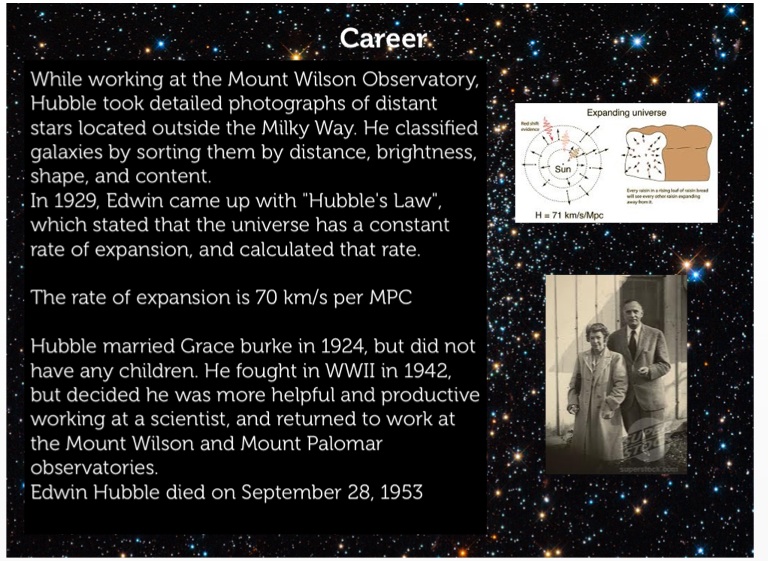

But it's become more than just refining a number to cosmologists. The measurement is about eight times more precise than Hubble's expected capability. This can be used to predict that the universe will double in size in 10 billion years. When the Hubble Space Telescope was launched in 1990 the universe's expansion rate was so uncertain that its age might only be 8 billion years or as great as 20 billion years.Īfter 30 years of meticulous work using the Hubble telescope's extraordinary observing power, numerous teams of astronomers have narrowed the expansion rate to a precision of just over 1%. The brightest, and therefore farthest detectable milepost markers are Type Ia supernovae. This required building a string of cosmic distance ladders assembled from sources that astronomers have a reasonable confidence in their intrinsic brightness. He suspected his measurements might be evidence of something else more oddball going on in the universe.įor decades after Hubble, astronomers have toiled to nail down the expansion rate that would yield a true age for the universe. Hubble even said that he studied the galaxies simply as "markers of space." However he was never fully convinced of the idea of a uniformly expanding universe. This could be interpreted as the uniform expansion of space. Hubble found that the farther a galaxy is, the faster it appears to be moving away from us. And, the galaxies weren't standing still. The first act of this revelation came when, a century ago, American astronomer Edwin Hubble discovered myriad galaxies outside of our home galaxy, the Milky Way. What's more, we wouldn't have a clue about its age either – or in fact if the universe was eternal. Without any observational evidence for space expanding, contracting, or standing still, we wouldn't have a clue to whether the universe was coming or going. Science history will record that the search for the expansion rate of the universe was the great Holy Grail of 20th century cosmology.

:no_upscale()/cdn.vox-cdn.com/uploads/chorus_asset/file/7497223/551318main_hs_2011_15_a.jpg)
Soon after, he along with Milton Humason proved that the galaxies of the universe are moving away from each other. Hubble’s real and extraordinary merit came out when he researched about the redshifts of the light emissions of the galaxies. After that, scientists named it Andromeda Galaxy. Actually, his method was right, and the Andromeda was farther than his estimation. He also estimated that Andromeda Nebula was about 900,000 light-years away from the Milky way and it may have its own galaxy. He took various photos through the Hooker’s telescope and compared them with new methods. He worked for the Mount Wilson Observatory to develop Hooker telescope.Įdwin Hubble, through his research- became able to prove that other galaxies are located outside of the Milky Way. Then he returned to Chicago University to study astronomy and later completed his Ph.D. Then he went to Oxford and obtained a bachelor’s degree in jurisprudence.Īt first, he took teaching in Indiana as a profession. In 1906 he received a scholarship to study at University of Chicago. He was very good at sports and athletics there.

His family moved to Chicago when he was 10. His interest towards science grew from his early days. He liked science fiction very much from his childhood. His father’s name was John Powell Hubble and mother’s Virginia Lee Hubble.


 0 kommentar(er)
0 kommentar(er)
